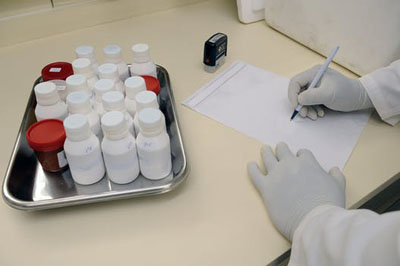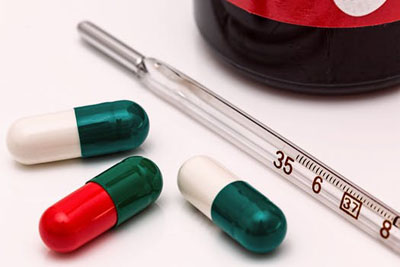Sclerotherapy (Injection Therapy)

Sclerotherapy is a popular form of haemorrhoid treatment by which a chemical agent is injected into the haemorrhoid to cause it to shrink and go away.
Sclerotherapy is a procedure typically prescribed for treating small, internal, first or second degree haemorrhoids i.e, in the starting stages of haemorrhoids.

Sclerotherapy is a popular form of haemorrhoid treatment by which a chemical agent is injected into the haemorrhoid to cause it to shrink and go away.
Sclerotherapy is a procedure typically prescribed for treating small, internal, first or second degree haemorrhoids i.e, in the starting stages of haemorrhoids.

The conditions that warrant the use of the procedure is specific. For example, physicians will commonly prescribe Sclerotherapy for-

Sclerotherapy is not appropriate for the hemorrhoids that have become prolapsed, or externalized, in which case Kshar Sutra Therapy would probably be recommended.

Sclerotherapy consists of injecting a chemical into the base of the hemorrhoid that actually hardens the tissue. There are a number of chemicals that are employed to produce this effect. The chemicals that achieve this are referred to as scelorosants, and include saline solutions, phenol, urea ,almond oil, dextrose solution and many more Whatever solution your physician chooses, it will produce similar reactions, with one objective: to produce sustained inflammation in the infected region, over a long enough duration, that scarring in the hemorrhoidal vein sets in. The scarring induces the vein to collapse and eventually shrivel and harden. The resulting scar will also act to reinforce the anus wall, and thereby ensure that the hemorrhoid does not bulge and reoccur, causing further symptoms or the need for continued treatment.


Sclerotherapy necessitates the patient adhere to strict protocol prior to, and after, the procedure has been performed. Typically, if possible, the patient is instructed to produce a bowel movement prior to the procedure, after which a lubricant is used in the anus, in addition to a topical anesthetic, to reduce pain or discomfort.

Sclerotherapy involves laying the patient on either their left or their right side, with their rectum protruding over the edge of the operating surface. The doctor will then inject the sclerotic chemical into the base of the hemorrhoid, above what is called the dentate line, which will reduce or eliminate any potential pain that will otherwise occur. Patient will feel a pin – prick pain when the needle is introduced into the hemorrhoidal mass. The actual injection is approximately 3 to 5 milligrams in size, and is administered slowly but steadily to allow for consistent absorption into the infected tissue.
The patient suffers mild to moderate pain which can be treated with some pain medication.

Adverse side-effects can include allergic reaction to the sclerotic solution, sloughing, or shedding of the mucosal lining in the rectum, inability to regulate bowel movements, or in males infection of the prostate gland. In the event one or any of these symptoms develop, consult with you doctor immediately.

Sclerotherapy typically produces results in approximately 7 to 10 days, in this time the hemorrhoid will shrink and fall off.
